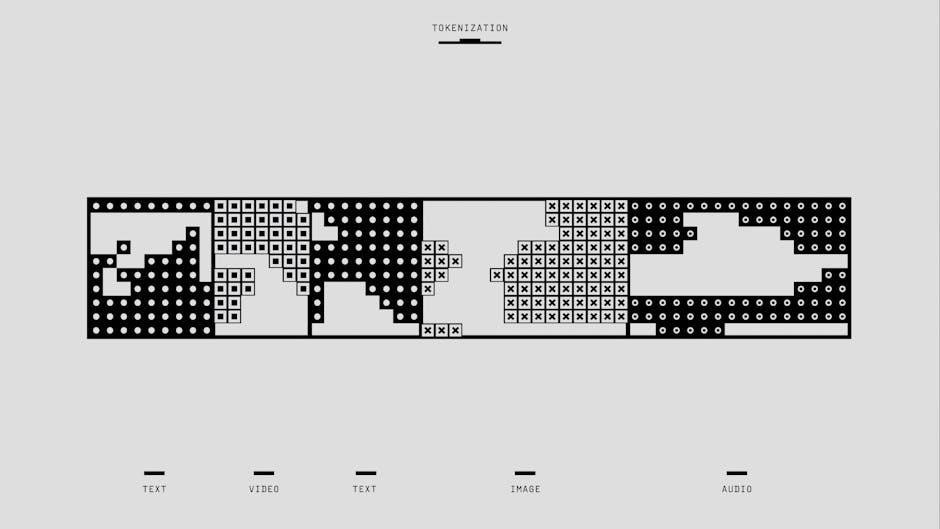Grade 7 math workbooks provide essential skills development, offering a structured approach to learning algebra, geometry, and probability. Spectrum Math Workbooks are popular, covering ratios, integers, and statistics. Available in PDF format, these resources are accessible for both classroom and homeschooling environments, ensuring comprehensive math education for seventh graders.
1.1 Overview of Grade 7 Math Curriculum
The Grade 7 math curriculum focuses on building foundational skills in algebra, geometry, and data analysis. Key topics include solving linear equations, understanding geometric shapes, and interpreting data. Students also explore ratios, proportions, and basic probability concepts. The curriculum emphasizes problem-solving and critical thinking, preparing learners for advanced math. Spectrum Math Workbooks align with these standards, offering structured lessons and practice exercises in PDF formats for easy access.
1.2 Importance of Using Math Workbooks for Grade 7
Using Grade 7 math workbooks is crucial for reinforcing classroom learning and building problem-solving skills. They provide structured practice, ensuring a strong foundation in algebra, geometry, and probability. Workbooks like Spectrum Math offer interactive problems and comprehensive exercises, catering to different learning paces. Regular use enhances confidence, improves accuracy, and prepares students for higher-grade challenges. PDF formats make them easily accessible for homeschooling or self-study, promoting consistent practice and skill mastery.
1.3 Benefits of PDF Formats for Math Workbooks
PDF formats for Grade 7 math workbooks offer numerous advantages, including easy accessibility and portability. They can be viewed on multiple devices, making learning flexible and convenient. PDFs are also cost-effective and environmentally friendly compared to printed books. Additionally, they often include interactive features like searchable content and clickable links, enhancing the learning experience. Spectrum Math Workbooks in PDF format provide high-quality, downloadable resources, ensuring students can practice anywhere, anytime, without relying on physical copies.

Key Topics Covered in Grade 7 Math Workbooks
Grade 7 math workbooks cover essential topics like algebra, geometry, probability, statistics, ratios, and integers. These resources ensure a well-rounded understanding of core mathematical concepts for seventh graders.
2.1 Algebra and Equations
Grade 7 math workbooks emphasize algebra and equations, focusing on solving linear equations, graphing, and manipulating algebraic expressions. Students learn to handle one-variable equations, apply inverse operations, and simplify expressions. The workbooks often include word problems that require setting up and solving equations, fostering problem-solving skills. Practice exercises and real-world applications help reinforce concepts, ensuring a strong foundation in algebraic thinking and preparation for higher-level math.
2.2 Geometry and Measurement
Grade 7 math workbooks focus on geometry and measurement, covering properties of shapes, perimeter, area, and volume calculations. Students explore angles, symmetry, and coordinate geometry, enhancing spatial reasoning. Measurement skills include converting units and calculating surface areas. Workbooks often feature real-world applications, such as designing floor plans or calculating distances, to make learning practical. Clear explanations and exercises help students master these foundational geometry and measurement concepts effectively.
2.3 Ratios and Proportions
Grade 7 math workbooks emphasize ratios and proportions, teaching students to compare quantities and understand equivalent fractions. Skills include simplifying ratios, identifying equivalent ratios, and solving proportion word problems. Workbooks often feature exercises on scaling recipes, comparing speeds, and mixing ingredients. These practical applications help students grasp how ratios and proportions apply to real-life scenarios, enhancing their problem-solving abilities and mathematical reasoning.
2.4 Probability and Statistics
Grade 7 math workbooks introduce probability and statistics, focusing on understanding chance events and data analysis. Students learn to calculate probabilities, interpret graphs, and summarize data. Workbooks often include exercises on predicting outcomes, creating bar graphs, and determining averages. These lessons help build foundational skills in data interpretation and probability, preparing students for more advanced statistical concepts in higher grades.

Structure of a Grade 7 Math Workbook
Grade 7 math workbooks are typically organized chapter-by-chapter, covering key topics like algebra, geometry, and ratios. Each chapter includes practice problems, review sections, and assessments to reinforce learning and track progress. This structured format ensures a comprehensive understanding of math concepts, making it ideal for both classroom and homeschooling environments.
3.1 Chapter-by-Chapter Organization
Grade 7 math workbooks are designed with a chapter-by-chapter structure, ensuring a logical progression of skills. Each chapter focuses on specific topics, such as algebra, geometry, or ratios, with clear objectives. Chapters often begin with introductory concepts, followed by practice problems, and conclude with review sections. This organized approach helps students build a strong foundation, gradually increasing in difficulty. For example, chapters on integers may start with basic operations and advance to solving equations. This method ensures comprehensive understanding and prepares students for higher-grade math challenges.
3.2 Practice Problems and Exercises
Grade 7 math workbooks are filled with practice problems and exercises designed to reinforce learning and improve problem-solving skills. Topics like algebra, geometry, and ratios are supported by numerous exercises, ensuring mastery. Each chapter includes a mix of straightforward and challenging questions, allowing students to progress at their own pace. Word problems and real-world applications are also included, making math relevant and engaging. These exercises are often followed by answer keys for self-assessment, helping students track their progress effectively.
3.3 Review Sections and Assessments
Grade 7 math workbooks include review sections and assessments to help students evaluate their understanding. These sections often feature quizzes, tests, and cumulative reviews that cover multiple chapters. They are designed to identify areas where students may need additional practice or review. Detailed answer keys and scoring guides are typically provided, allowing students and teachers to track progress. Regular assessments ensure that learners are well-prepared for final exams and higher-grade math challenges.

Popular Grade 7 Math Workbook Series
Popular Grade 7 math workbooks include Spectrum Math, Khan Academy Resources, and McGraw-Hill Workbooks. These series are widely used for their comprehensive coverage and practice exercises, available in PDF formats for easy access and learning.
4.1 Spectrum Math Workbooks
Spectrum Math Workbooks are highly regarded for their comprehensive coverage of Grade 7 math topics, including Algebra, Geometry, Probability, and Statistics. They offer clear explanations, practice exercises, and real-world applications, making them ideal for both classroom and homeschool settings. Available in PDF format, these workbooks provide flexibility and accessibility, ensuring students can practice anywhere. Their structured approach helps build foundational math skills, making them a popular choice among educators and parents for Grade 7 learners.
4.2 Khan Academy Math Resources
Khan Academy Math Resources offer free, high-quality learning materials for Grade 7 math, complementing PDF workbooks. Their interactive exercises, video tutorials, and personalized learning tools help students master Algebra, Geometry, and more. Ideal for homeschooling or supplementary learning, Khan Academy provides detailed explanations and practice problems, making it a valuable resource for reinforcing math concepts and improving problem-solving skills for seventh graders.
4.3 McGraw-Hill Math Workbooks
McGraw-Hill Math Workbooks are renowned for their comprehensive approach to Grade 7 math education. These workbooks cover essential topics like algebra, geometry, probability, and statistics, offering clear explanations and practice problems. Designed to align with curriculum standards, they feature structured lessons and review sections to reinforce learning. Available in PDF format, McGraw-Hill workbooks provide accessible, high-quality resources for both classroom and homeschooling settings, ensuring students build a strong math foundation.

How to Choose the Right Grade 7 Math Workbook
Selecting the right workbook involves aligning with curriculum standards, ensuring comprehensive topic coverage, and choosing formats like PDF for accessibility. Spectrum workbooks excel in these areas.
5.1 Aligning with Curriculum Standards
Ensuring a workbook aligns with curriculum standards is crucial for effective learning. It guarantees comprehensive coverage of key topics like algebra, geometry, and ratios. Spectrum Math Workbooks are designed to meet these standards, offering structured lessons and exercises. Students benefit from a cohesive learning experience, while teachers can confidently integrate these resources into their lesson plans. PDF formats of these workbooks are easily accessible, making them ideal for both classroom and homeschooling environments. Proper alignment ensures students master essential skills and concepts required for academic success.
5.2 Difficulty Level and Suitability
Choosing a workbook that matches the student’s skill level is vital for effective learning. Spectrum Math Workbooks are designed to suit Grade 7 students, balancing challenge and accessibility. They cover topics like algebra, geometry, and ratios, with clear instructions and practice problems. The workbooks are suitable for both advanced learners and those needing extra support. PDF formats ensure accessibility across devices, making them ideal for classroom or homeschool use. This adaptability helps students progress confidently in their math journey.
5.3 Additional Resources and Support
Many Grade 7 math workbooks, such as Spectrum Math Workbooks, offer additional resources to enhance learning. These include online video tutorials, interactive practice quizzes, and downloadable answer keys. PDF formats often link to supplementary materials, ensuring students can revisit concepts at home. For homeschooling, these resources provide parents with tools to track progress and assist their children effectively. Such support systems make workbooks a comprehensive solution for math education.

Using Grade 7 Math Workbooks for Homeschooling
Grade 7 math workbooks, particularly in PDF format, are ideal for homeschooling due to their structured approach and accessibility. Parents can easily use Spectrum Math Workbooks to create personalized learning plans, ensuring comprehensive coverage of algebra, geometry, and probability. These resources are adaptable, allowing homeschoolers to study efficiently at home or on the go, with materials available across multiple devices for flexible learning.

6.1 Creating a Structured Learning Plan
Grade 7 math workbooks, such as the Spectrum Math Workbooks, provide a clear framework for creating a structured learning plan. Parents can organize lessons by chapter, focusing on key topics like algebra, geometry, and probability. The PDF format allows easy access to daily schedules and practice problems, ensuring consistency. By incorporating regular assessments and review sections, homeschooling parents can monitor progress and adjust the plan to meet their child’s needs, fostering a disciplined and effective learning environment.
6.2 Integrating Workbooks with Online Tools
Grade 7 math workbooks can be enhanced by integrating them with online tools like Khan Academy and IXL. These platforms offer video lessons, interactive exercises, and real-time feedback that complement workbook problems. Parents can assign workbook chapters alongside online modules, ensuring a blended learning approach. Tools like GeoGebra provide interactive math models, helping students visualize concepts. This integration creates a dynamic and engaging learning experience, catering to different learning styles and preferences while reinforcing workbook material.
6.3 Tips for Parents and Guardians
Parents and guardians play a crucial role in supporting their child’s math journey. Encourage a daily routine for workbook practice, ensuring consistency. Be actively involved by sitting with your child during study sessions to guide and clarify doubts. Praise their efforts and progress, fostering a positive mindset. Tailor your approach to your child’s learning style, using visual aids or hands-on activities if needed. Provide a quiet, distraction-free workspace and encourage questions to deepen understanding. Regularly review progress with teachers to address any gaps early.

Interactive and Digital Features of PDF Workbooks
PDF workbooks offer interactive features like clickable links, searchable text, and embedded multimedia, enhancing learning engagement. They provide flexibility, allowing access on multiple devices for anytime, anywhere study.
7.1 Interactive Problems and Quizzes
Interactive problems and quizzes in PDF workbooks engage students with clickable question formats, such as multiple-choice and fill-in-the-blank. Immediate feedback features help track progress and understanding. These tools cater to different learning styles, making math practice enjoyable and effective. Quizzes often cover a range of topics, reinforcing concepts and preparing students for assessments. The interactivity encourages active participation, helping Grade 7 learners grasp complex ideas through hands-on practice and instant results.
7.2 Searchable Content and Navigation
Grade 7 math workbook PDFs often feature searchable content, allowing students to quickly locate specific topics or problems. Navigation tools like bookmarks and hyperlinks simplify access to chapters, exercises, and review sections. This functionality enhances study efficiency, enabling learners to focus on areas needing improvement. Searchable content also aids in revisiting concepts, making it easier to cross-reference definitions or related problems, thereby supporting a more organized and effective learning process for students.
7.3 Accessibility on Multiple Devices
Grade 7 math workbook PDFs are accessible on multiple devices, including tablets, laptops, and smartphones. This flexibility allows students to study anywhere, ensuring uninterrupted learning. The PDF format maintains consistent formatting across devices, preserving the integrity of equations and diagrams. Offline access is a significant advantage, enabling students to practice math problems even without internet connectivity. This versatility makes PDF workbooks an ideal resource for modern, on-the-go education and learning environments.

Common Challenges in Grade 7 Math
Students often struggle with understanding negative integers, solving complex word problems, and mastering basic geometry concepts like angles and area calculations.
8.1 Understanding Negative Integers
Negative integers introduce students to numbers less than zero, often challenging due to their abstract nature. Real-world examples, like temperatures below freezing or debts, help illustrate their practical use. Worksheets in Grade 7 math workbooks provide exercises to practice operations with negatives, such as addition and subtraction. Visual aids like number lines enhance comprehension, while word problems contextualize their application. Consistent practice is key to building confidence and fluency with negative integers.
8.2 Solving Word Problems
Word problems require students to translate real-life scenarios into mathematical equations, often posing a challenge. Grade 7 math workbooks include strategies like identifying key terms and using visual aids. Practice exercises focus on topics like multi-step calculations and ratios. Examples are provided to demonstrate how to break down problems systematically. Regular practice helps build critical thinking and problem-solving skills, essential for mastering word-based math challenges effectively.
8.3 Mastering Basic Geometry Concepts
Grade 7 math workbooks emphasize understanding points, lines, angles, and shapes. Students learn to calculate perimeter, area, and volume, as well as identify properties of triangles, quadrilaterals, and polygons. Visual diagrams and practice problems help reinforce concepts. Focus is placed on recognizing and drawing shapes, understanding congruency, and applying geometry to real-world scenarios. Regular practice strengthens spatial reasoning and foundational skills needed for advanced geometry in higher grades.

Supplements to Grade 7 Math Workbooks
Supplements like online tutoring, video lessons, and mobile apps enhance learning. Group study fosters collaboration, while digital tools provide interactive practice, ensuring well-rounded math skills development.
9.1 Online Tutoring and Video Lessons
Online tutoring and video lessons provide personalized learning experiences, complementing Grade 7 math workbooks. Video tutorials break down complex concepts into digestible parts, while live tutoring offers real-time guidance. Platforms like Khan Academy and virtual classrooms enable students to review lessons, practice problems, and clarify doubts. These resources are accessible anytime, making them ideal for reinforcing workbook exercises and fostering independent learning; They also cater to different learning styles, ensuring comprehension and confidence in math skills.
9.2 Mobile Math Apps
Mobile math apps offer interactive and engaging ways to practice Grade 7 math concepts. Apps like Photomath and Khan Academy provide step-by-step solutions, interactive quizzes, and personalized learning paths. They cater to visual and auditory learners, making complex problems easier to understand. Many apps track progress, identifying weak areas and offering focused practice sessions. This portability allows students to learn anywhere, making math practice convenient and enjoyable while supplementing their workbook exercises.
9.3 Group Study and Peer Learning
Group study and peer learning are effective ways to reinforce math concepts. Students can collaborate on problem-solving, share ideas, and explain concepts to one another. Peer discussions help clarify doubts and deepen understanding. Group activities, such as solving workbook problems together or creating study guides, foster teamwork and accountability. This collaborative approach not only strengthens math skills but also builds communication and critical thinking abilities, complementing individual workbook practice.
A Grade 7 math workbook PDF is a comprehensive learning tool that enhances understanding, builds confidence, and prepares students for future academic challenges effectively and efficiently.
10.1 Final Thoughts on Effective Learning
Effective learning in Grade 7 math requires consistency, structured practice, and interactive tools. A well-designed workbook PDF fosters problem-solving skills, logical thinking, and confidence. By combining visual aids, step-by-step explanations, and diverse exercises, it ensures a deep understanding of concepts. Regular use of such resources, alongside online videos or apps, creates a holistic learning experience, equipping students to excel in math and beyond with a strong foundation for future challenges.
10.2 Encouraging Continuous Practice
Continuous practice is essential for mastering Grade 7 math concepts. Regular use of a workbook PDF helps students build fluency and confidence in problem-solving. Parents and educators can create structured routines, ensuring consistent practice. By dedicating short, focused sessions daily, students can reinforce learning and improve retention. This approach prepares them for assessments and fosters a strong foundation for advanced math skills, making practice a cornerstone of academic success.
10.3 Preparing for Higher-Grade Math
A Grade 7 math workbook PDF is a valuable tool for preparing students for higher-grade math. It builds a strong foundation by reinforcing key concepts like algebra, geometry, and problem-solving. Regular practice with the workbook helps students develop critical thinking skills and math fluency. Additionally, it introduces advanced topics in a structured manner, ensuring readiness for more complex math in higher grades. This preparation fosters confidence and equips students with the skills needed for long-term success.
